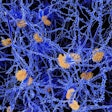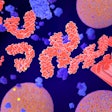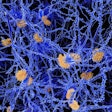
Blood metabolites could one day help predict which patients with Alzheimer's disease will experience relief from cognitive symptoms through exercise therapy, based on preliminary data presented on August 5 at the American Association for Clinical Chemistry (AACC) conference in Anaheim, CA.
A team of researchers led by Danni Li, PhD, and Fang Yu, PhD, both from the department of laboratory medicine and pathology at the University of Minnesota, identified the metabolites in a study of 26 patients.
Prior research has suggested that exercise enhances cognition in Alzheimer's disease and reduces the accumulation of amyloid plaques in the brain. In light of the many failures of drug treatment, exercise has become an increasingly important area of research for this common and disabling condition. In the U.S., one of every three seniors has Alzheimer's or another form of dementia at the time of death.
Several phase III clinical trials are investigating exercise's efficacy as a treatment, but the effects in patients vary, so a diagnostic that could identify responders would be helpful. The study reported at the AACC meeting evaluated potential biomarkers in a cohort of 26 patients who are taking part in the Effects of Aerobic Exercise for Treating Alzheimer's Disease study, sponsored by the University of Minnesota. Known as FIT-AD, the 90-patient randomized trial is testing the effects of moderate-intensity cycling versus range-of-motion/stretching exercises on cognition and hippocampal volume in Alzheimer's patients.
The researchers measured the levels of 188 metabolites in participants' blood before the trial began and then again one year later. At the same time points, the team tested the patients' cognitive abilities using the Alzheimer's Disease Assessment Scale-Cognition tool, a test often used to determine cognitive response.
A nontargeted, hypothesis-generating approach was taken in the study, according to Li. The investigators found that changes in the levels of two phospholipids -- lysoPC a C18:2 (lysophosphatidylcholine acyl C18:2) and PC aa C40:6 (phosphatidylcholine diacyl C40:6) -- as well as in five amino acids -- isoleucine, leucine, methionine, tyrosine, and valine -- were associated with an improvement in Alzheimer's patients' cognitive abilities.
While the research is encouraging, Li emphasized that it is still preliminary; the results must be validated and replicated. A new follow-up clinical trial of 120 patients that will combine exercise and cognitive training as an intervention for cognitive impairment is in the planning stages. The follow-up trial will also look for metabolites associated with improvements in patients' cognitive abilities.



















